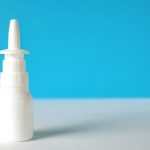
It’s easy these days to see how many calories a cheeseburger will set you back, or how many added sugars are in a jar of pasta sauce. But nutrition labels haven’t been as helpful at helping people cut calories as might have been hoped, according to a new evidence review published Jan. 17 in the Cochrane Database of Systematic Reviews. Labels slapped on offerings at supermarkets and restaurants lead to only a small reduction in the calories people select and purchase, according to findings gathered from 25 prior studies. The average calorie reduction was just under 2%, or about 11 calories in a 600-calorie meal – the equivalent of around two almonds, researchers said. “Our review suggests that calorie labeling leads to a modest reduction in the calories people purchase and consume,” senior investigator Gareth Hollands, a principal research fellow with the University College London Social Research Institute, said in a news release. “This may have some impact on health at the population level, but calorie labeling is certainly no silver bullet,” Hollands added. The review compiled evidence from studies involving more than 10,000 people living in high-income countries like the U.S., Canada, France and the U.K., researchers said. The studies all focused on the impact of nutrition labeling on food selection and consumption, and 16 of the 25 were conducted in real-world settings like… read on > read on >

















-150x150.jpg)
